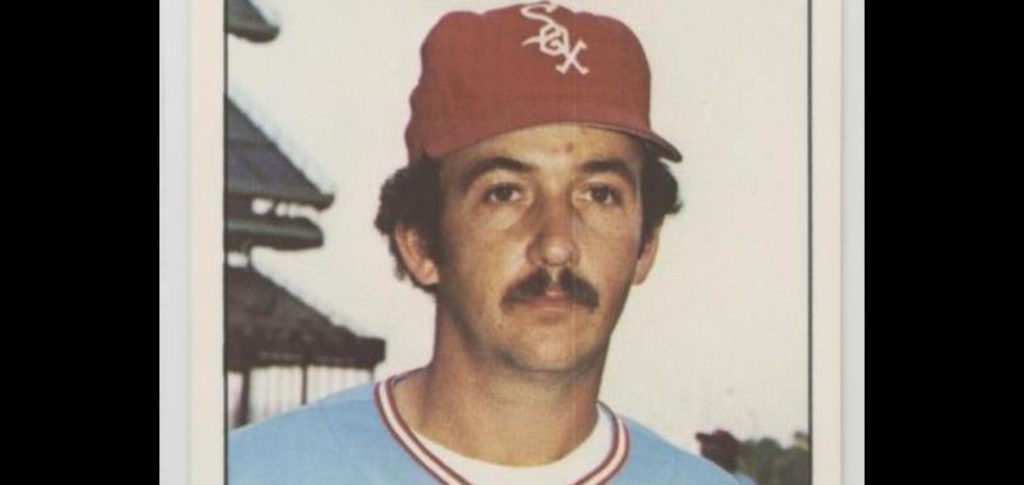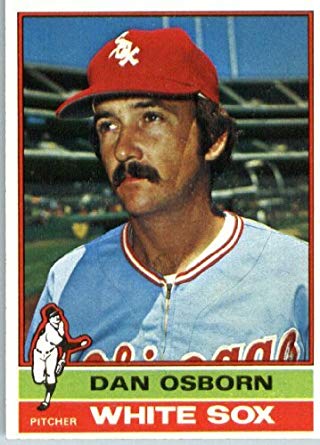The story of Dan Osborn: So close yet so far

Credit: AP Photo

Ozzie Osborn doesn’t receive a Major League Baseball (MLB) pension.
Not the former reality television star and singer with the heavy metal band Black Sabbath. That Ozzie hails from Birmingham, England, and spells his last name, Osbourne.
No, I am referring to the 73-year-old former ballplayer Dan “Ozzie” Osborn, who lives in Westminster, Colorado, just a scant 55 miles away from Fort Collins, Colorado, where former Padres’ hurler Brian Lawrence came from.
The gap in what each earns is much more significant than that.
Osborn – whose given name is Danny Leon Osborn – was a pitcher for the 1975 Chicago White Sox. In 24 career appearances, he won three games and tossed 58 innings. And he is among the 626 retired ballplayers who, because they played before 1980, aren’t receiving a pension for their time in “The Show.”
All the men like Osborn get is a stipend, referred to as a non-qualified retirement benefit, of $625 for every 43 games they appeared on an active MLB roster. Up to a maximum payment of $10,000.
Meanwhile, the maximum IRS pension limit for a vested retiree is $225,000.
Let me put that in perspective for you: when Lawrence, who pitched for the Padres and Mets from 2001-2007, turns 62-years-old, he’ll get a full pension.
But not Osborn. He’s getting a bone thrown at him. All because he played before 1980.
Since the average player made $4.47 million last season, and the minimum salary goes up to $563,500 in 2020, I don’t understand why the executive director of the Major League Baseball Players’ Association (MLBPA), Tony Clark, won’t do right by Osborn by going to bat for him as well as all the other men affected.
The players’ union has to broach this in collective bargaining negotiations with the league. The league doesn’t have to do a thing.
Imagine you were called up on August 15 of last year by your favorite team and stayed on its roster till October 1. You never played a game, never pinch ran, never pinch-hit, never was used as a defensive replacement. All you did was sit on the bench. For your 43 game days of service, because you played after 1980, you know what you’re guaranteed when you turn 62-years-old? A pension of $3,589. And that pension gets passed on to your loved ones when you die. But Mr. Osborn’s non-qualified monies don’t get passed on to his survivors when he passes on, in spite of the fact he was on an active roster much longer than you were.
Is this fair? Of course not. Even giving each man a flat $10,000 – which is what the so-called pre-1947 players received, namely, those men who didn’t pay union dues because they played before the establishment of the pension plan in 1947 – would be better than this ridiculous actuarial computation.
Unions are supposed to help hard-working women and men in this country get a fair shake in life. But Clark doesn’t seem to want to help anyone but himself — Clark receives an MLB pension AND an annual salary of more than $2.1 million, including benefits, for being the head of the union.
MLB — which recently announced that its revenue was up 325 percent from 1992 and that it has made $500 million since 2015.– is also in a position to help all these men if it wanted to especially since the average value of each of the 30 clubs is up 19 percent from 2016, to $1.54 billion.
The fact that the suits who run our national pastime cannot, or refuse to, share more of their wealth with the men like Osborn is not only disappointing, but it bespeaks to greed. Deep-seated, wrenched full of guts greed.
In 1969, Black Sabbath recorded a song that summed up that disappointment to a tee: “Wicked World” is a protest song whose lyrics demonstrate how the elite can run roughshod over the poor and disenfranchised.
Both MLB Commissioner Rob Manfred and the MLBPA’s Clark must have it on their personal playlists.
Freelance magazine writer.
Advocate for MLB players rights
Awesome article. Thank you